
All categories
Featured selections
Trade Assurance
Buyer Central
Help Center
Get the app
Become a supplier

(1591 products available)














































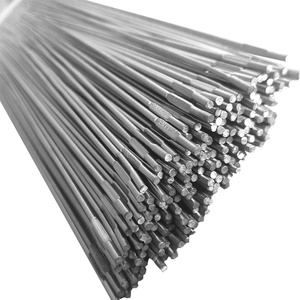
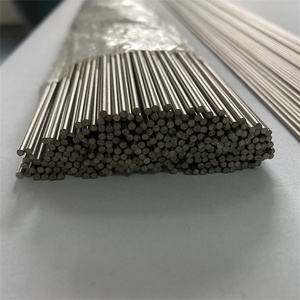
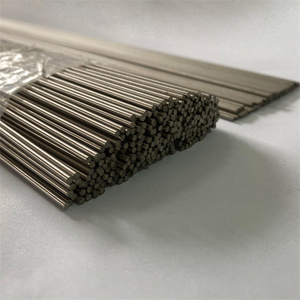
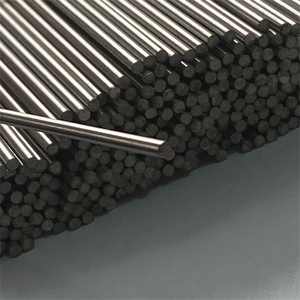
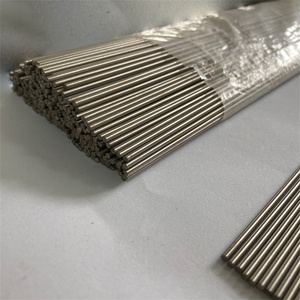

titanium niobium are an essential component in various industries due to their unique properties and versatility. As part of the non-ferrous metal category, they are renowned for their strength-to-weight ratio, corrosion resistance, and high-temperature performance. These characteristics make titanium niobium ideal for applications in aerospace, automotive, medical, and construction sectors. The demand for titanium niobium continues to grow as industries seek materials that can deliver high performance while reducing overall weight and improving fuel efficiency.
There is a diverse range of titanium niobium available, each tailored to meet specific industrial needs. Common types include titanium sheets, titanium rods, and titanium tubes. Titanium sheets are widely used in the aerospace industry for constructing aircraft components due to their lightweight and high strength. Titanium rods are favored in the medical field for orthopedic implants, where biocompatibility and durability are crucial. Titanium tubes find applications in heat exchangers and chemical processing equipment, where corrosion resistance is paramount. Each type of titanium niobium is engineered to provide optimal performance for its intended application, showcasing the versatility of titanium in various forms.
titanium niobium offer a myriad of functionalities that make them indispensable in demanding environments. Their outstanding corrosion resistance ensures longevity in harsh conditions, such as marine and chemical settings. The high strength-to-weight ratio of titanium niobium allows for lightweight constructions without compromising structural integrity, making them ideal for aerospace and automotive applications. Additionally, titanium niobium exhibit excellent thermal stability, maintaining performance at elevated temperatures, which is crucial in industries like power generation and metallurgy. The ability to withstand extreme conditions without degradation makes titanium niobium a preferred choice for engineers and designers seeking reliable materials.
The production of titanium niobium involves utilizing pure titanium or titanium alloys, each offering distinct properties. Common alloys include Ti-6Al-4V, known for its high strength and corrosion resistance, and Ti-3Al-2.5V, which is favored for its superior formability. Alloying elements such as aluminum and vanadium enhance the mechanical properties and workability of titanium niobium. The choice of alloy impacts the product's performance, allowing manufacturers to tailor titanium niobium to specific applications. As industries advance, the development of new titanium alloys continues to push the boundaries of what titanium niobium can achieve, ensuring they remain at the forefront of material innovation.
Effectively utilizing titanium niobium involves understanding their unique properties and selecting the right type for the specific application. In aerospace, the use of titanium sheets in constructing aircraft fuselages and wings reduces weight, improving fuel efficiency and performance. Medical applications benefit from titanium rods in implants, providing biocompatibility and long-term durability. In construction, titanium niobium are used to reinforce structures exposed to corrosive environments, ensuring longevity and safety. The versatility of titanium niobium allows them to be adapted to various industrial needs, making them a valuable asset in sectors requiring materials that can perform under pressure. Proper handling and installation maximize the benefits of titanium niobium, ensuring optimal performance and longevity.
When selecting titanium niobium for industrial applications, it's crucial to consider the specific requirements of the project. Factors such as the environment in which the material will be used, the mechanical stress it will undergo, and the thermal conditions it will face are all important. For instance, titanium niobium used in aerospace applications must have excellent strength-to-weight ratios and thermal stability. Understanding these parameters will guide you in choosing the appropriate type and grade of titanium niobium. Consulting with material experts can also provide insights into the most suitable options for your needs.
Another consideration is the form factor of the titanium niobium. Whether you need sheets, rods, or tubes, each form offers distinct advantages depending on the application. For example, titanium sheets are often used for structural components, while rods are preferred for medical implants due to their biocompatibility. Tubes are ideal for applications requiring fluid handling, such as in chemical processing. The choice of form factor should align with the functional requirements and constraints of the project, ensuring that the titanium niobium performs optimally.
Titanium sheets, a type of titanium niobium, are widely used in the aerospace industry for constructing aircraft components. Their lightweight and high-strength properties make them ideal for reducing the overall weight of aircraft while maintaining structural integrity. Additionally, titanium sheets are used in architectural applications where durability and corrosion resistance are required, such as in roofing and cladding.
The use of titanium niobium in medical applications is largely due to its biocompatibility and corrosion resistance. Titanium rods and implants are commonly used in orthopedic surgery as they integrate well with bone and are less likely to cause adverse reactions in the body. The material's durability also ensures long-term performance in medical devices.
One of the key advantages of titanium niobium is its excellent thermal stability. Titanium can maintain its strength and structural integrity at elevated temperatures, making it suitable for applications in industries such as power generation and metallurgy. This property allows it to be used in components such as turbine blades and heat exchangers where high-temperature performance is crucial.
Yes, titanium niobium is highly suitable for chemical processing applications due to its outstanding corrosion resistance. Titanium tubes and vessels are often employed in environments where they are exposed to aggressive chemicals, ensuring longevity and reliability. This makes titanium a preferred material for equipment used in the chemical industry.
Titanium alloys, a form of titanium niobium, offer enhanced mechanical properties compared to pure titanium. The addition of alloying elements such as aluminum and vanadium improves strength, formability, and corrosion resistance. These alloys are tailored for specific applications, providing material solutions that can meet demanding industrial requirements.